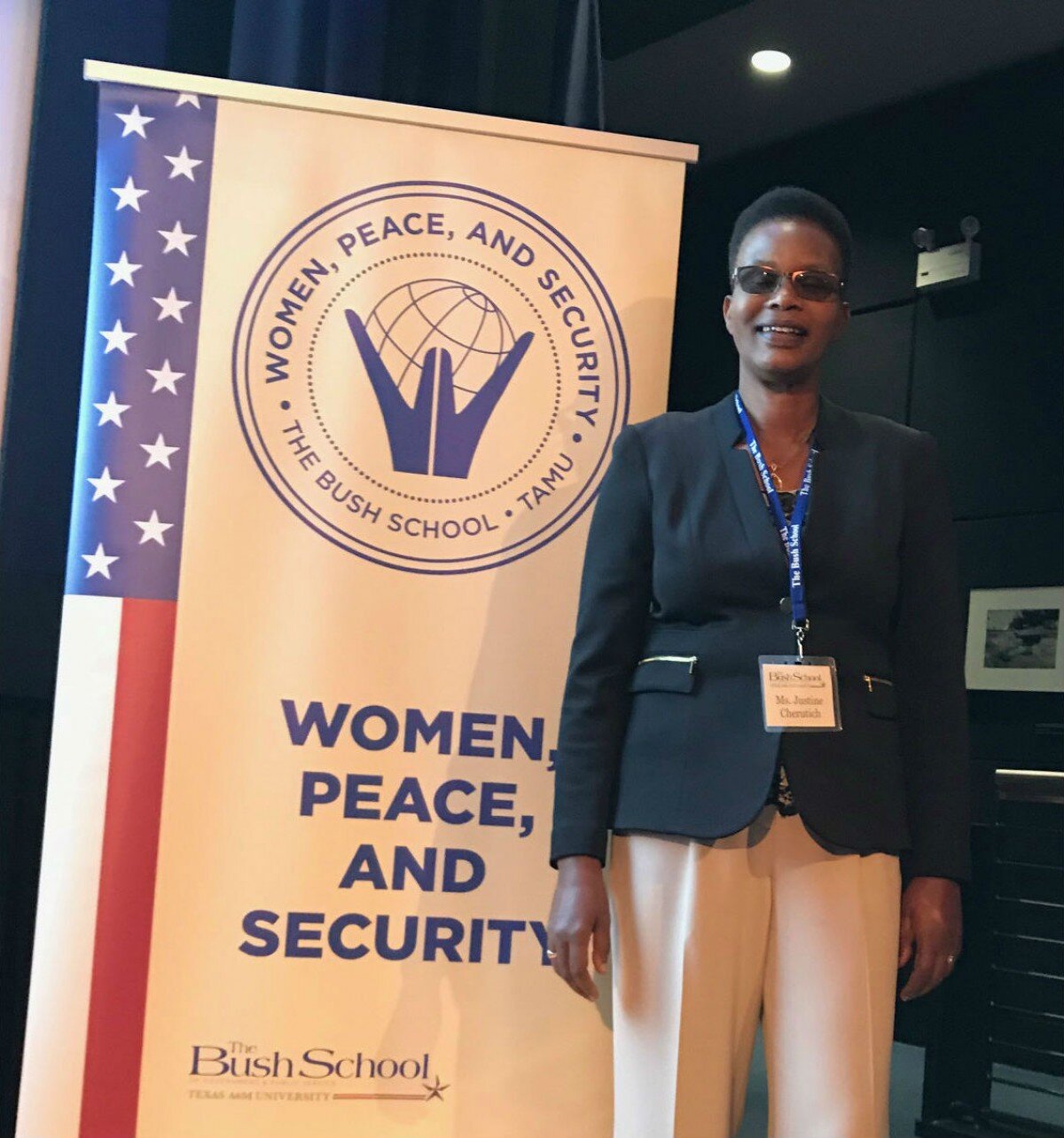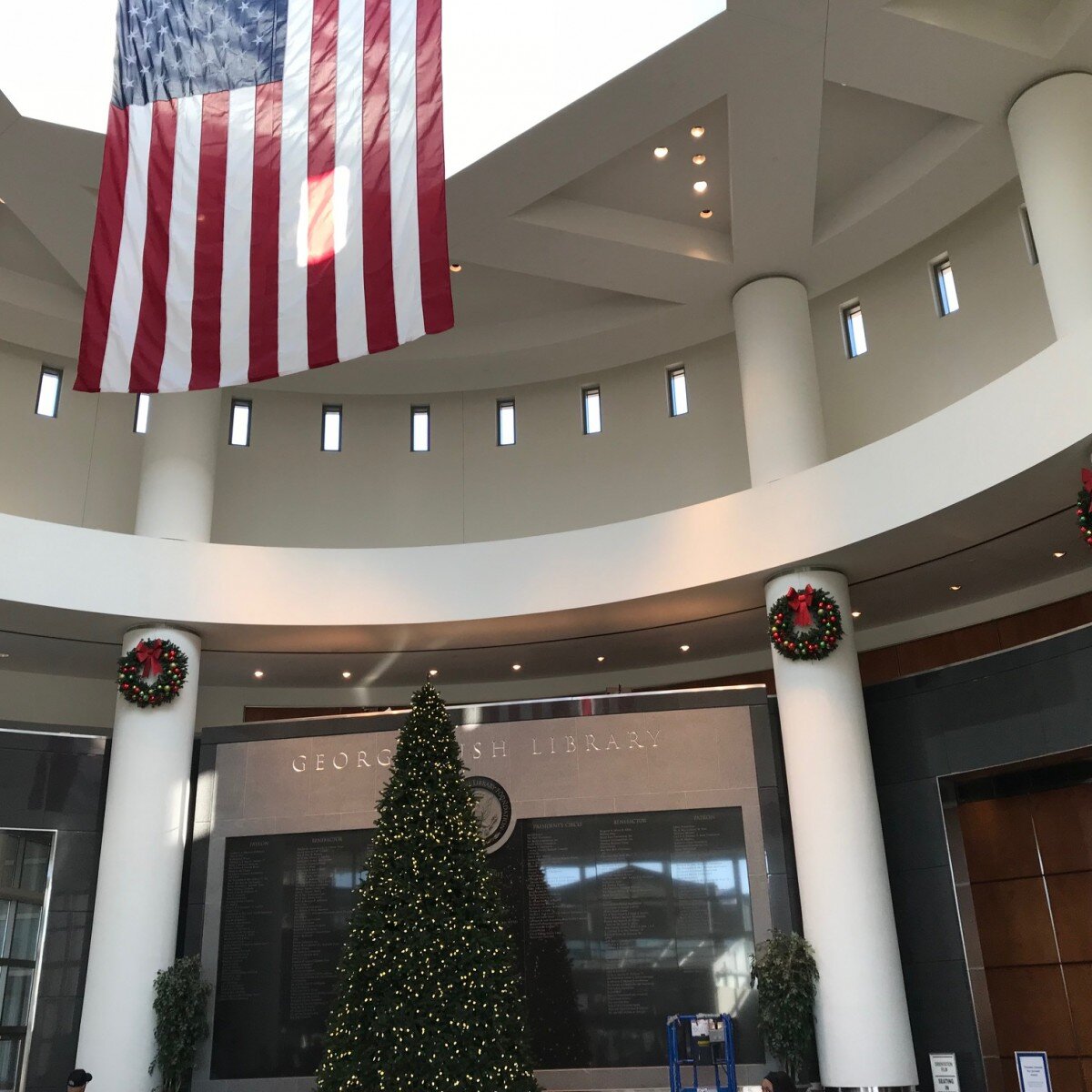IT ALL STARTS WITH FAMILY: WFWP TEXAS PRESENTS AT WOMEN, PEACE, AND SECURITY SYMPOSIUM
Afew weeks ago, the WFWP Texas chapter was invited to participate in a panel discussion at the Women, Peace, and Security Symposium at the Bush School of Government and Public Service, Texas A&M University in College Station, Texas. As we finished our WFWP 25th anniversary celebration event on November 4, I started preparing for the panel immediately afterward.
My husband and I left for College Station and participated in the opening ceremony which was held on November 19th with a delicious dinner at a local restaurant. Ms. Judy McLennan, Bush 41 Administration CSW Chief, was the guest speaker and gave some recollections and reflections of the time she served in the administration. She stated that Bush 41 appointed more women in higher positions of government than any president had ever done at that point. The next day, the program started with a welcome address by the Dean of the school. We had several speakers and panels throughout the day. Guest speakers were Ambassador Catherine Russell, who is the former Ambassador at-large for Global Women’s issues, US State Department. She lamented that now, with the state department budget cut, the department on women’s issue was the first to be slimmed down. The second guest speaker of the day was the Honorable Kay Granger, US House of Representatives. She was introduced by a congressman who also lamented her being the only female in the Republican House of Representatives.
There were 4 panels in total. Each individual in the panel had a specific topic. The first panel to present was “Women as Peace Builders in Afghanistan.” This panel spoke about the difficulties and progresses that has been made in Afghanistan. One of the panelists had come from Afghanistan and is a parliament member. Another Afghani panelist, who is a Bush Institute employee, spoke on how difficult it still is for girls in Afghanistan. She stated that girls are given in marriage around 10 and 12 years old. She has built a school in Afghanistan and recruits some of the girls for schooling with the cooperation of their husbands and other family members. She stated how important it is to cooperate with families within the cultural setting if one hopes for any success.
The second panel was “Health as a Security Priority for Women and Nations.” One of the panelists is a professor of geography at A&M and was explaining her research findings on “Public Defecation in India and How it Affects Women.” The majority of Indians living in the slums do not have private toilets and have to use public ones. The public ones are usually about a 20 to 30 minutes walk and they are most of the time unusable. It is a very serious issue for Indian women who are many times beaten and raped going to and coming from public toilets. Many times, those rapes will not be reported due to fear of shame and rejection by husbands and families. Therefore, women sometime will not eat or drink to avoid having to deal with the using the public toilets.
The third panel was composed of NGOs, including WFWP. One panelist spoke about Genesis, a women’s shelter in Dallas. Anita Marcos, who crossed the bridge with me at our WFWP Texas 25th anniversary event, spoke about the founder of the Peace Maker Inc. and her work.
Questions were addressed to individual NGO representatives. In regard to the WFWP, the individual question I was asked was, “The WFWP and its Texas chapter emphasize the importance of women as peacemakers in the home and the family. Why is this important and how does WFWP empower a woman to affect peace within her family?” I spoke about WFWP as an international organization, operating in more than 50 countries and having more than a hundred projects including schools in Africa and Asia. These schools were built and continue to be supported by WFWP and from which about 15,000 children have graduated. Although WFWP does all these projects at the world level, locally WFWP also focuses where it all begins: the family. WFWP teaches that the family is the school of love and we all learn our values and how to treat others from the family and mothers are at the center of all it. The mother is the one who nurtures the children with maternal love in the family. What one learns in the family is transferable to the community which is why sustainable peace can only be achieved when it starts in a family.
WFWP empowers a woman to be a peacemaker in her family by offering educational seminars and workshops throughout the year to empower women with the knowledge they need. At times, WFWP invites speakers who are experts in their fields to share practical tools based on their experiences, insights, and wisdom.
A general question to our panel was: What are we each doing to impact and bring in the young generation for future leadership? WFWP’s response was that the women of WFWP collaborate with local schools and bring children to the Commission on the Status of Women each year in New York so that they can meet women leaders from all over the world. In doing so, they can get inspired and the experience can instill in them leadership aspirations.
The program ended in the evening with closing reflections by professor Valerie Hudson. One of her highlights was hearing that family is crucial in the outcome of many important global, current issues.
It was a full, packed day, and an incredible learning experience!



